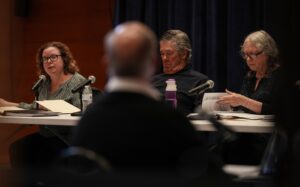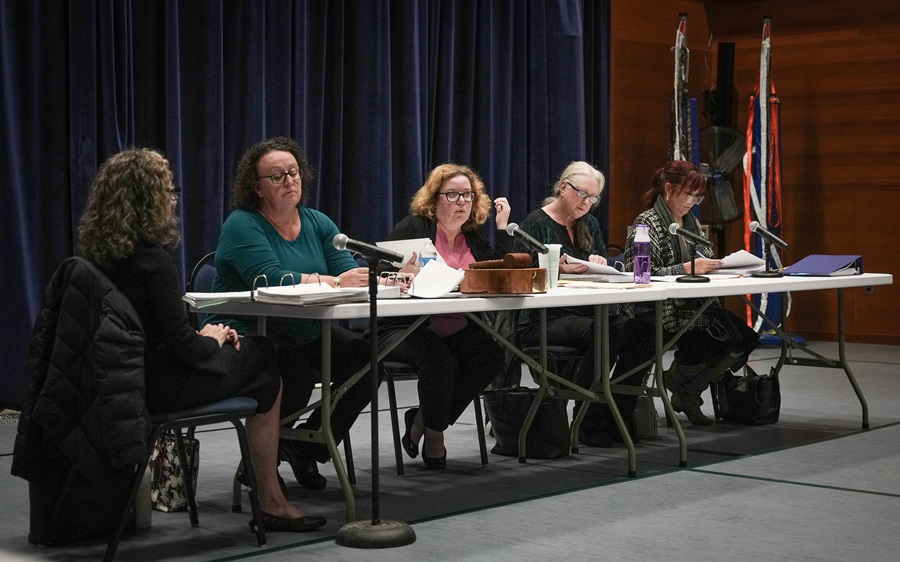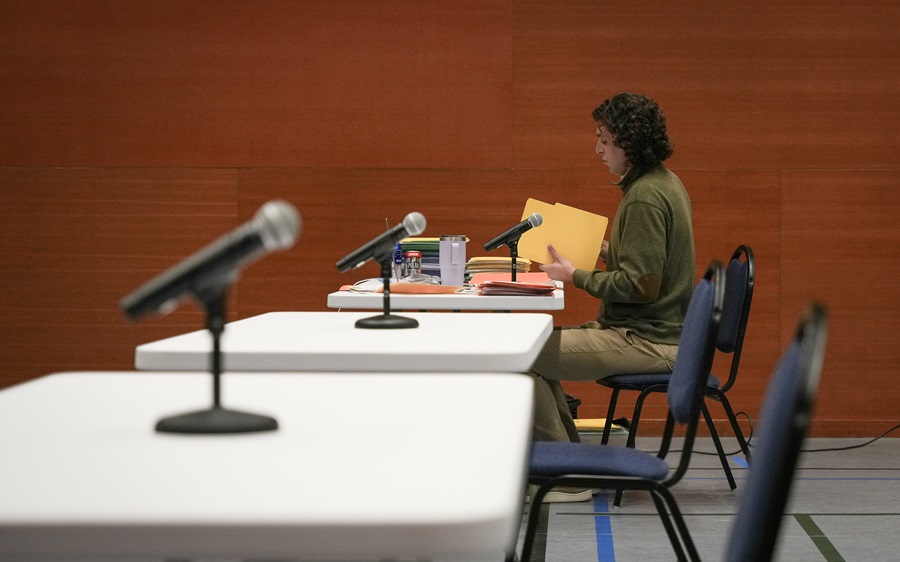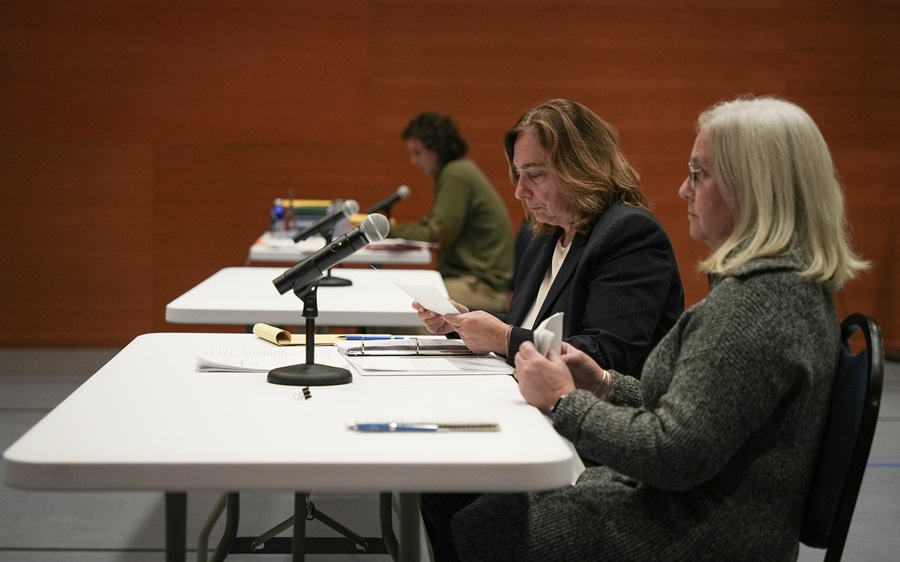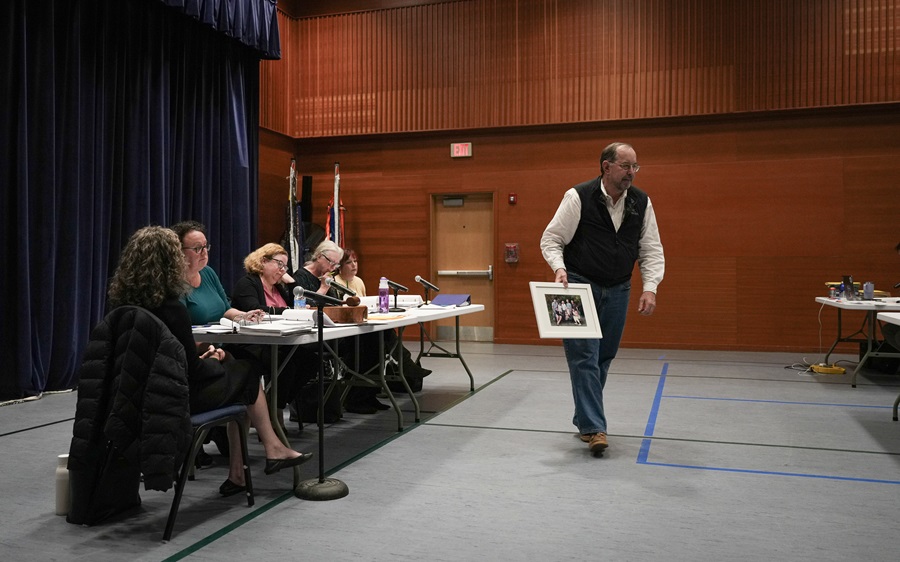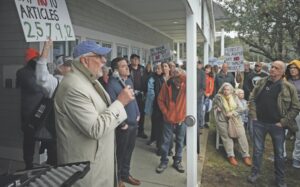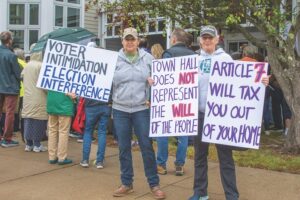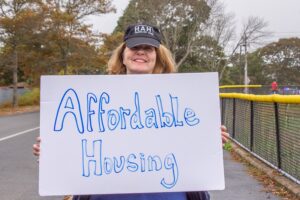This article was updated on July 19.
TRURO — As Cape Cod’s most seasonal town, Truro has been a hotspot for questions about whether people have the right to vote in towns where they live only part time.
A controversial campaign last summer and fall resulted in 32 people having their new voter registrations in Truro upheld by the town’s board of registrars, while 34 other people either withdrew their recent registrations or were removed from the town’s voter roll. In the wake of those hearings, the select board revived the town’s Part-Time Resident Advisory Committee (PTRAC), which had not met since 2018, and appointed six new members.
That group’s first meeting since being reconstituted was on June 26. It was largely procedural, but Stephen Duncombe and Phineas Baxandall were elected co-chairs, and the committee discussed plans for a community forum in August.
Anthony Garrett, president of Truro’s longstanding privately organized part-timers’ group, the Truro Part-Time Resident Taxpayers’ Association (TPRTA), said of the new committee that “we’re excited about that actually, in a good way.”
Garrett said the new committee has an opportunity “to present the positions that are of interest to part-time residents directly to the select board.”
A Campaign Reverberates
The TPRTA held its annual meeting on Saturday, July 6. The meeting was open to members and invited guests only; a reporter from the Independent was not allowed to observe. At last summer’s annual meeting, on July 1, 2023, the membership had voted to launch the controversial voter registration campaign.
According to minutes from that meeting that were posted this month, “Members unanimously voted for TPRTA to engage in a voter registration and GOTV effort in 2023-24 to increase voting by eligible part-time residents in a lawful manner.”
But after this year’s annual meeting, Garrett told the Independent that the TPRTA had not encouraged its members to register to vote in Truro. “We really educated our membership, and then they made their own decisions,” Garrett said. “There was no encouragement to do anything.”
Garrett’s denial is inconsistent with the group’s emails last year. “If you have ever considered registering to vote in Truro, now is the time,” read an email sent by TPRTA leadership to its membership last fall. “The voices of Truro’s part-time resident taxpayers need to be heard now more than ever — as voters. The time is now, when so much is at stake,” the email continued.
The email also included links to online voter registration platforms. “Register ASAP at least one member of your Truro household to vote in Truro if you can,” it said, with the first two words in bold-face type.
Another email sent by TPRTA vice president Regan McCarthy on Aug. 6, 2023 was intended only for the TPRTA’s board members. It mentioned members’ unanimous vote “for TPRTA to spearhead a voter registration effort,” but said that effort should stay “under the radar.”
Asked about those documents, Garrett said that McCarthy’s memo had not been intended for a wider audience. “There was an internal board memo which was not disseminated to our membership,” he said. “That was a confidential document for discussion at a board meeting.”
McCarthy’s memo states the goal “to get 200 ‘part-timers’ to register to vote in Truro” before the fall special town meeting.
David Sullivan, a voting rights expert who authored the state’s manual on “Residence for Voting Purposes,” told the Independent last fall that part-timers wrongfully voting in a town can dilute the authority of a town’s rightful voters. “You’ve got to distinguish the right to vote of someone who is an actual resident of the town from someone who is not a legal resident of the town and does not have the right to register to vote there,” Sullivan said.
A challenge from voter Raphael Richter to 66 newly registered voters last fall resulted in the months-long delay of the special town meeting. The board of registrars held hearings at which challenged voters were asked to document their residency. Just over half of those voters withdrew or were found not to be residents.
Sullivan told the Independent this week that he stood by his comments from the fall. “There’s nothing wrong with encouraging people to register to vote if they’re eligible, meaning in this case that they’re residents of the town,” he said.
Garrett said the “confidential” McCarthy memo had been “leaked by a former board member, and he subsequently resigned from the board.”
The select board held an executive session on July 9 “to discuss strategy with respect to pending and threatened litigation.” The public agenda listed “voter registration complaints” as one of nine existing or potential cases.
Garrett said he was not aware of any litigation: “This is the first I’m hearing of it,” he said.
The chair and vice chair of the select board declined to comment on any litigation.
Looking Forward
Garrett said the TPRTA’s roughly 400 members have three areas of focus this year: the residential tax exemption (RTE), the new DPW facility, and affordable housing.
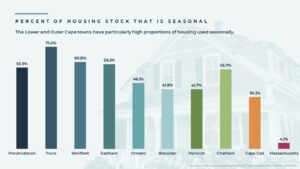
The RTE allows year-round residents to exempt 30 percent of the town’s median property value from the assessed value of their homes when calculating property taxes. According to information on the town’s website, the deduction amount was $312,841 last year, and the deduction can be taken whether an owner or a renter is the year-round occupant.
About 70 percent of members who responded to the TPRTA’s annual survey support eliminating the RTE, according to survey results obtained by the Independent.
Regarding the DPW, Garrett said members agree the town needs a new facility. “The prevailing desire of the entire community is that it be located on Town Hall Hill, but that’s not necessarily a TPRTA position,” said Garrett, who is also a member of the town’s ad hoc building committee.
When it comes to housing, “the TPRTA wants to make it clear that we are not averse to affordable housing,” Garrett said, adding that members want to make sure development “is done in an appropriate manner.”
“Given the fragile nature of the infrastructure in Truro, we just want to make sure that proper densities are maintained to not only protect the environment but also maintain the rural character of the town,” Garrett said.
According to U.S. Census data from the Cape Cod Commission, Truro has the highest percentage of seasonally vacant houses on Cape Cod — more than 70 percent.
In the next-most-seasonal towns, Wellfleet and Eastham, 61 percent and 59 percent of houses are seasonally vacant, respectively, according to a chart based on data from the 2021 American Community Survey.
Truro has established a new advisory committee to help steer the development of the 70-acre Walsh property for open space and housing. Garrett said that committee would be “the watch group of that development.”
Editor’s note: Because of a reporting error, an earlier version of this article, published in print on July 18, incorrectly stated that Frank Korahais had left the board of the TPRTA during the past year. He is still a member of the board, and he told the Independent that he had nothing to do with the leaking of the confidential memo referred to in the article. The Independent regrets the error.

